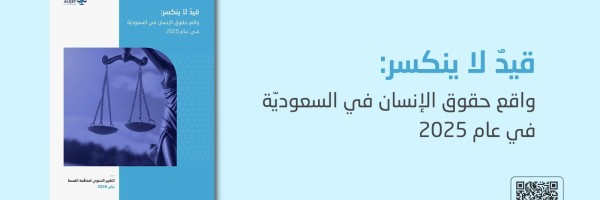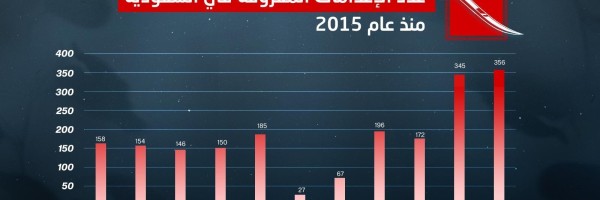Saudi PhD student Salma al-Shehab was released on 10 February 2025 after more than four years of arbitrary imprisonment on the basis of her peaceful online activism supporting women’s rights in Saudi Arabia. While she is no longer in prison and can now be reunited with her two young children, Saudi Arabia’s authorities must ensure that al-Shehab is granted full freedom, including the right to travel to complete her PhD studies at the University of Leeds in the United Kingdom.
Her release follows the reduction of her prison sentence, in September 2024, from 27 years to four with an additional four years suspended, a term which expired in December 2024. These developments came after a sustained campaign for her release, in a case that garnered significant global attention and condemnation, and in which the UN Working Group on Arbitrary Detention (UNWGAD) qualified her detention as arbitrary.
Al-Shehab, 36, a dental hygienist, was arrested in January 2021 during a family holiday in Saudi Arabia, a few days before her planned return to the UK, where she was studying. She was subjected to nearly 10 months of solitary confinement and lengthy interrogation before being brought before the Specialised Criminal Court, the Saudi court that handles terrorism cases. Following a grossly unfair trial, al-Shehab was convicted and sentenced on terrorism charges simply for her peaceful social media activity, including following and retweeting posts on X (formerly Twitter) in support of women’s rights activists in Saudi Arabia.
From an initial sentence of six years in prison, handed down in March 2022, al-Shehab’s term was drastically increased on appeal in August 2022 to 34 years, one of the longest sentences ever imposed on a peaceful activist for exercising the right to free expression. In January 2023 her sentence was somewhat reduced to 27 years, before being more significantly reduced in September 2024 after she was unexpectedly brought to retrial. This huge discrepancy between sentences handed down at different stages in the case is emblematic of the arbitrary and unjust nature of the Saudi judicial system as a whole.
While in prison, and throughout the trial process, al-Shehab was subjected to a catalogue of human rights violations, including solitary confinement, restrictions on her right to legal counsel, and exposure to danger by being placed alongside inmates transferred from a psychiatric hospital. Her pleas for help from the Saudi Human Rights Commission were ignored. Her health also deteriorated, and she went on hunger strike in protest against her unjust imprisonment.
Furthermore, imprisonment effectively separated al-Shehab from her two young children and derailed her academic career. The prison authorities insisted that family visits could only be conducted using a glass partition, which posed a significant challenge for her children, both of whom are on the autism spectrum. As a result, al-Shehab was forced to make the excruciating decision to forgo seeing her children for the entirety of her time in prison.
Other prisoners of conscience who have been released in Saudi Arabia in recent years continue to face heavy restrictions, notably travel bans that prevent them from leaving the country and in many cases tear families apart. Human rights defender Mohammed al-Qahtani, for example, was recently released from prison but remains under a 10-year travel ban, which cruelly prevents him from being reunited with his wife and five children in the United States. Such bans are normally imposed in advance as part of the prisoner’s judicial sentence, usually for the same additional length of time as the prison term itself, but the authorities also impose “unofficial” travel bans without any notification.
Meanwhile, amid a sweeping crackdown on peaceful dissent and free expression in Saudi Arabia, many individuals remain arbitrarily detained inside Saudi Arabia’s harsh prison system, serving lengthy and unjust sentences, including for online speech. This includes fitness instructor Manahel al-Otaibi (sentenced to 11 years' imprisonment), mother of five Nourah al-Qahtani (45 years), Red Crescent worker Abdulrahman al-Sadhan (20 years), and medical doctor and Wikipedia administrator Osama Khalid (32 years).
ALQST calls on the Saudi authorities to ensure Salma al-Shehab’s unconditional freedom, including by revoking any unjust restrictions imposed on her and allowing her to travel and complete her education abroad.




